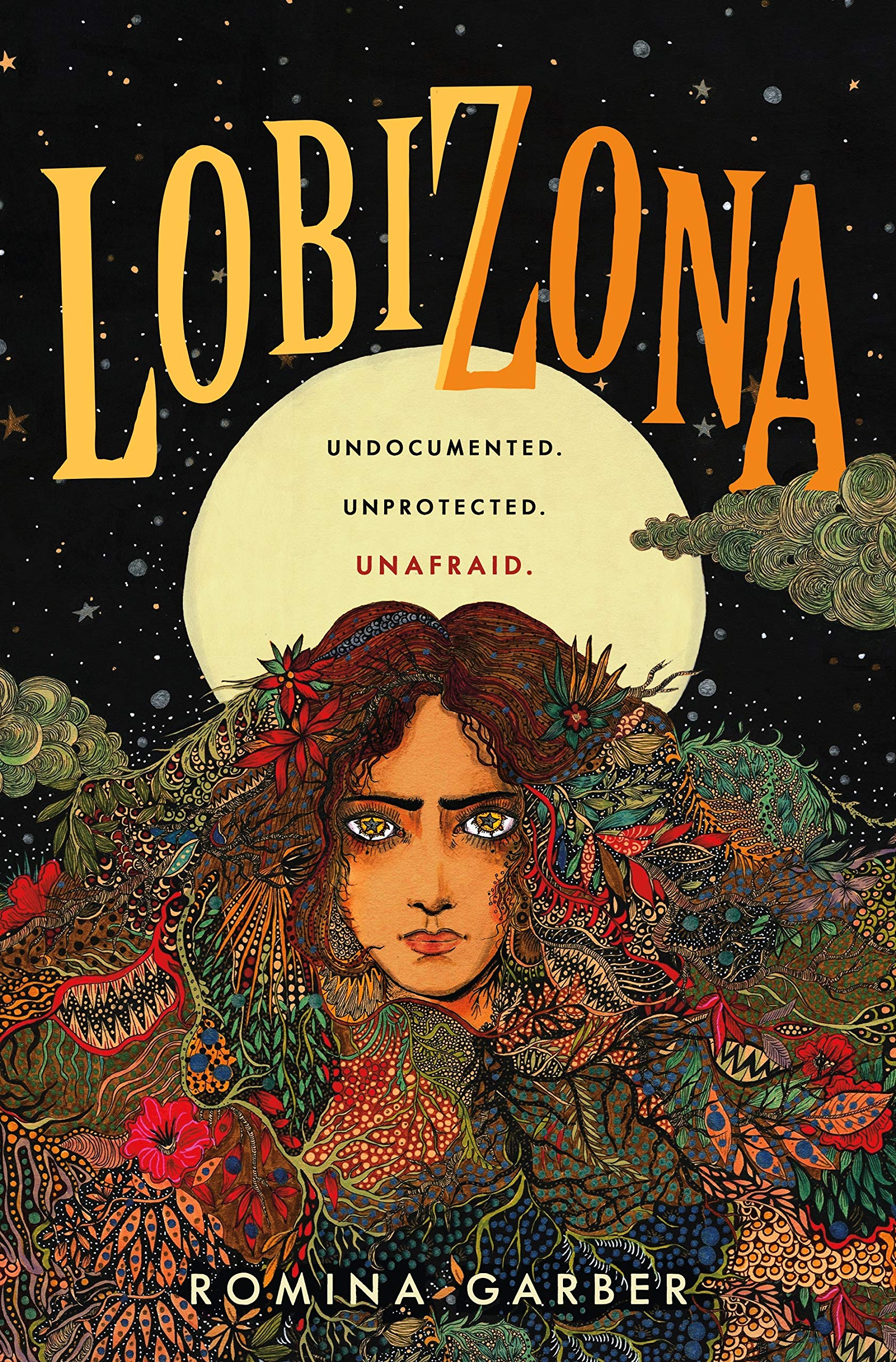I’ve probably said this before, but one of the most joyous things to me about the increasing author diversity in the SFF genre (slowly, slowly increasing) is the opportunity to see a wider range of authors take on familiar types of stories. To my immense delight, Romina Garber’s novel Lobizona has not just werewolves but a magic boarding school. This is great for me because while I have mixed feelings about Creatures, I adooooore a boarding school story and even more adore a magic boarding school story.

Manu and her mother are undocumented immigrants, and Manu has spent the bulk of her life hiding inside. The rule is that visibility = deportation and deportation = death (at the hands of her mysterious father’s family back in Argentina). Unfortunately, Manu is exceptionally visible, with starry golden eyes that are very clearly not normal. She wears mirrored sunglasses everywhere she goes, but that isn’t always enough. One day, her mother promises, they’ll get their American citizenship, and then they can get Manu the surgery that will make her eyes “normal.” And then they’ll be safe. Except that Manu’s foster grandmother is injured (attacked?) on the very same day that ICE agents show up at Manu’s mom’s workplace. Though Manu gets away safely, her mother is nabbed by ICE. She has nowhere to go, until she stumbles upon a world where everyone has eyes like hers. A world of werewolves and witches where she can be safe — or can she?
(No she cannot. Come on. This is a YA novel.)
My favorite thing about Lobizona is how deftly Garber marries fictional stakes with real ones. In many ways, the first “phase” of the book feels like your classic dystopia novel, except that instead of living under a fictional dystopian regime, Manu and her family live under a real, true dystopian regime: the grim realities of American immigration enforcement. When the ICE agents come for Manu’s mother, it’s as terrifying as any YA dystopia you’ve ever read. Their uncaring brutality is all the more chilling because the reader knows that Garber is simply depicting the realities of life for undocumented immigrants. Not to get political on main, but this dystopia is the world white Americans have built, and it is long past time for us to get our house in order. Please get involved however you can to support Democratic candidates in the upcoming elections!
As an aficionado of boarding school books, I can report that Lobizona charmed the pants off me by being the first boarding school book I’ve read for years where they have a special! boarding school! sport! It made the worldbuilding feel extra-cool, and I only wish Manu had had more of an opportunity to show off her skills as a goalie. If anything, I wanted more school. Lobizona is clearly and explicitly influenced by Harry Potter, but whereas those are school books with mysteries inside, this one is an adventure story with some boarding school interludes. That said, it felt very heartening to see the ways in which authors are drawing on problematic inspirations (like the Harry Potter books) to create that type of story for marginalized readers. And JK Rowling can fuck right off into the sea. (Apparently this is the review post where I get super salty about politics at the end of every paragraph! Who knew?)
As is often the case for me with contemporary YA, I got a little bored of the romance in this book. Tiago is your typical nice, helpful blank slate of a romantic interest. I was way more excited about Manu’s blossoming friendships with Cata and Saysa, who are hiding some really excellent secrets, and about the camaraderie she develops with the other members of her sportsball team. I dearly hope that Pablo and Diego and Javier will all show up in Book 2, because I grew to be terribly fond of them. It turns out all anyone need do to win my heart is be a side character who’s unexpectedly loyal. See also: Wen Ning in The Untamed.
As Manu learns, her new world is sharply segregated by gender. The boys are werewolves; the girls are witches; they are all expected to enter into a heterosexual marriage and produce children to ensure the survival of the race. At the same time, Manu is herself a living testament to the limited nature of the system, and multiple characters over the course of the book push back on the gender essentialist, heteronormative assumptions the werewolf society rests on. Given that Garber is clearly aware of the problems in the magic system, I’m hopeful that Book 2 will include a couple of trans or nonbinary characters, so we can get a sense of how magic works for them. As it was, I felt a little anxious about the gender divides.
Overall, I enjoyed the heck out of this book, and I’m really looking forward to the second one. Lobizona blends real-world dystopia with a fantasy-world boarding school which is, let’s be honest, its own different kind of dystopia. But Manu is a determined protagonist and is on her way (I hope) to becoming a devoted friend and a revolutionary. I can’t wait!